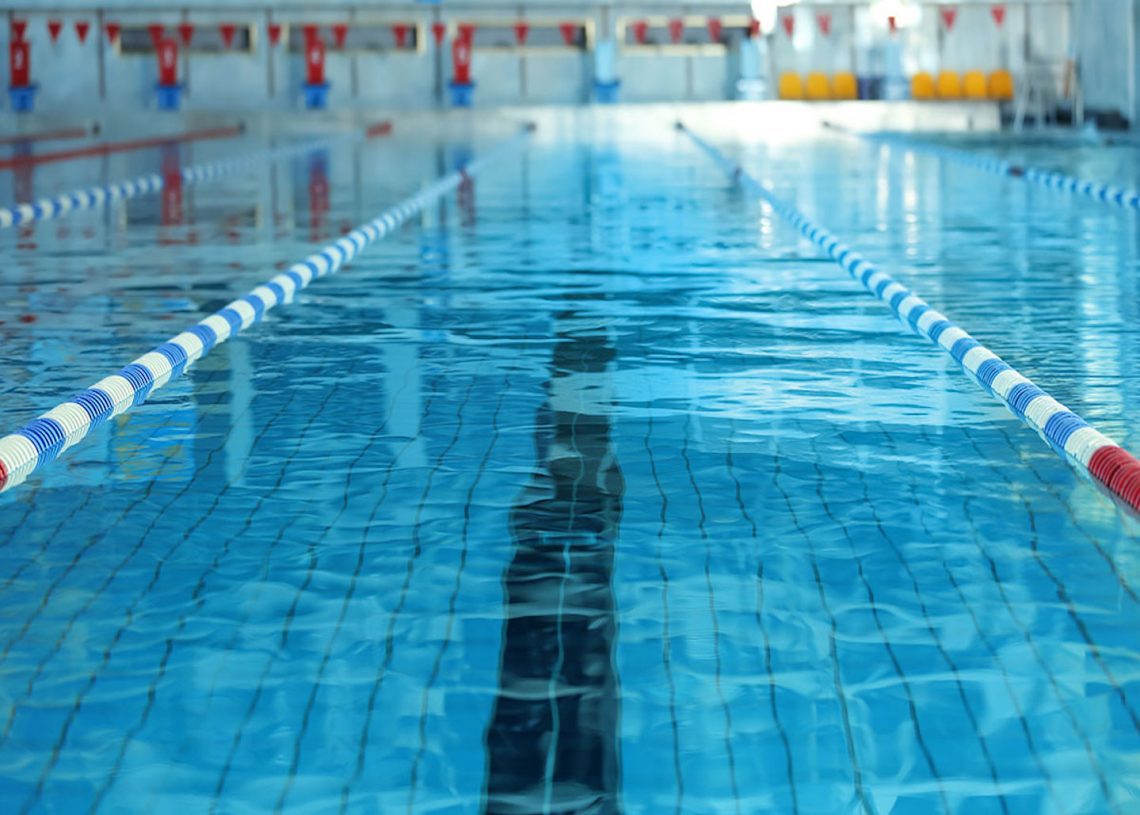
Olympian Rebecca Adlington backs campaign to keep the nation’s pools open
Swim England has launched its ‘Don’t Put a Cap on Swimming’ campaign in a fight back against threats to pools and open water swimming
Swim England has launched its Don’t Put a Cap on Swimming campaign as new research shows that aquatic activity generates £2.4billion of social value.
However, this social value may be at risk due to uncertainty regarding the future of many of the country’s swimming facilities, according to the latest insight.
Swim England’s second Value of Swimming report has outlined how water-based activity benefits society by improving people’s physical and mental health, reducing the pressure on the NHS and social care system, improving people’s quality of life and aiding both individual and social and community development.
However, financial pressures on local councils, increased costs and ageing pools mean many facilities have an uncertain future.
A wave of pool closures
More than 1,000 publicly accessible pools have closed since 2010 – while, around 1,500 are in excess of 40 years old and coming towards the end of their ‘shelf life’.
Older pools can often be less energy efficient with leisure centres contributing as much as 40% of a council’s direct carbon emissions. Newer facilities have the potential to be much more environmentally sustainable.
The financial pressures have also forced pools to focus on revenue generation which carries the risk of reducing access and widening existing inequalities. Since 2010, more than three times the number of public pools have been lost in the most deprived parts of the country (169) compared to the richest (49).
Swim England’s campaign is calling on Government to ensure the country has a network of sustainable pools to support all the activities and sports that rely on them, as well as increasing access to outdoor swimming opportunities.
Recognising the importance of swimming
Swim England chief executive Jane Nickerson MBE said: “Swimming pool owners and operators are ambitious and keen to do more to maximise the benefits of public sport and leisure services for their communities and deliver the ambitions set out in the government’s ‘Get Active’ sport and physical activity strategy.
“This includes contributing towards wider societal objectives, such as reducing the burden on the NHS and social care system, lowering levels of obesity and cutting carbon emissions. This transformation will only happen if there is leadership and investment from Government and councils.
“With the right leadership, partnerships, coordination and investment our nation’s pools can deliver significantly more social, economic and environmental benefits for the whole of society, supporting the long-term health and success of the nation.
“Of course, that requires investment in building the greener pools of the future and decarbonising existing pools, but it is about more than that.
“There needs to be a shared vision across all levels of government as to the purpose of our swimming pools and leisure centres which is reflected in pool contracts, one which recognises their immense value to communities and widens access to the water.”
To help achieve this, the campaign calls for greater integration and alignment between the health and leisure sectors, particularly through the work of Integrated Care Systems. Co-location of health and leisure services can help this integration as well as increased social prescribing of aquatic activities.
A vital life skill
The campaign has the backing of former Olympic champion Rebecca Adlington OBE who said: “Swimming is such a fantastic activity for people of all ages.
“Whether it is children learning a vital skill, families having fun together, people using the water for their physical and mental health or older people and those with conditions that mean they may struggle to be active on land.
“That’s why it’s so important we have the pools we need for the future to support all these activities.”
Former world champion Mark Foster added: “Swimming has enriched my life and I know it continues to do the same for thousands of people across the country.
“Swimming is fun for people of all ages, abilities and backgrounds and, as Swim England’s Value of Swimming report underlines, being in water can bring so many health and wellbeing benefits.
“It’s vital that anyone who wants to swim and wants to feel the benefits of swimming on a regular basis has access to a local pool.”
Outdoor blue spaces
The campaign also focuses on the importance of outdoor water – with outdoor swimming continuing to grow in popularity and calls for improved access to clean water, including increasing the number of designated bathing waters.
The campaign is underlined by new research unveiled by Swim England which revealed that regular swimming is associated with a range of health benefits, with 78,500 cases of ill health prevented in 2022 alone.
The largest health savings are made up from dementia (£105,202,672) and diabetes (£94,920,452).
Other key savings are made in strokes (£29,247,180), hip fractures (£28,596,541), breast cancer (£10,557,363), colon cancer (£4,566,962), and depression (£3,375,224).
The report also reveals how £35,859,685 is saved as a result of reduced GP and psychotherapy visits by those who swim regularly.
Enriched lives
Almost 1,000 clubs are affiliated to Swim England with around 175,000 members and the report highlights how swimming leaves them more satisfied with life and less anxious than the general population.
Swim England is encouraging everyone who loves the water or their pool to get involved in the campaign by using their local facilities and lobbying their MP to ensure the country has access to a sustainable network of pools and water for the future.
Read more about the campaign and find out how you can support your local pools swimming.org/swimengland/dont-cap-swimming
Sign up to The Dip, our free weekly newsletter for more swimming news.








